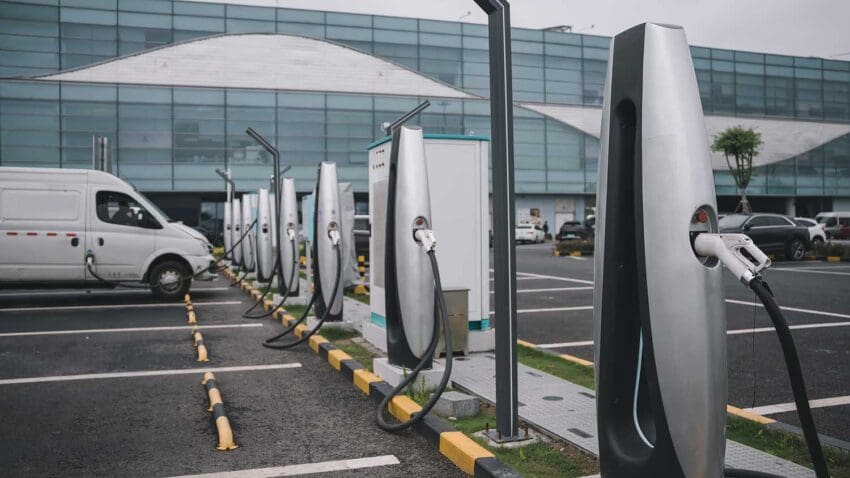How EVs are Helping Companies Meet Their Sustainability Goals
Today’s corporate landscape is more competitive than ever. For companies to stand out, it has become imperative to establish and work towards sustainability goals.
Electric vehicles (EVs) have become a central component of their sustainability strategies. Transitioning to these modes of transportation allows businesses to lower emissions, reduce operational costs, and enhance their corporate image—all while making a tangible impact on the planet.
Read on to learn how EVs are empowering companies to reach their sustainability targets and why many businesses are investing in electric bus charger manufacturers and other EV solutions to transform their fleets and achieve greener, more efficient operations.
EVs as Integral Components of Corporate Fleets
Electric vehicles (EVs) are revolutionizing corporate fleets by providing a cleaner, more sustainable alternative to traditional gasoline-powered vehicles.
The range of innovations in the EV market is impressive, spanning from compact cars designed for urban commuting to robust electric trucks and buses capable of handling heavy-duty tasks. This versatility means that businesses across a wide array of industries can find EV solutions tailored to their specific needs and operational requirements.
The adoption of EVs in corporate fleets is not just limited to small cars for city use.
Companies can now choose from different electric options, including delivery vans, which are ideal for logistics and transportation sectors, and larger electric trucks for industries like construction and waste management. Electric buses are becoming increasingly popular for public transportation and private shuttles, offering a sustainable solution for moving large numbers of people efficiently.
How EVs Support Key Corporate Sustainability Goals
As companies place increasing emphasis on sustainability, electric vehicles (EVs) have become essential tools in achieving these objectives. Here’s how they support key corporate sustainability goals:
1. Meeting Emission Reduction Targets
Many companies have set ambitious targets to achieve carbon neutrality or reduce emissions by specific dates. EVs are a crucial part of these plans.
Choosing electric vehicles over fuel-based ones enables businesses to achieve substantial emission reductions, directly supporting their carbon goals.
Incorporating EVs into a corporate fleet can help:
- Eliminate tailpipe emissions, which are a significant source of urban air pollution.
- Reduce Scope 1 emissions (direct emissions from owned or controlled sources), helping businesses fulfill regulatory and voluntary sustainability commitments.
2. Driving Cost Efficiency
While the initial investment in EVs and charging infrastructure can be high, the long-term financial benefits are substantial.
EVs have lower fuel and maintenance costs compared to traditional internal combustion engine vehicles. Additionally, many governments offer incentives, rebates, and grants for businesses adopting EV technology, further offsetting the initial costs and enhancing financial viability.
3. Improving Corporate Image
Embracing EV technology can significantly enhance a company’s brand image. Companies that adopt EVs are seen as innovators and leaders in sustainability, which can attract eco-conscious customers and investors. Such a positive perception can drive brand loyalty and increase market competitiveness.
4. Enhancing Employee Satisfaction
Employees often feel proud to work for companies that are committed to environmental stewardship. Providing EV charging stations at the workplace not only supports employees who drive EVs but also demonstrates the company’s commitment to sustainability. This can boost employee morale, satisfaction, and retention.
5. Supporting Local Communities
When companies invest in EV infrastructure, they contribute to the development of sustainable communities.
Installing EV charging stations supports the local adoption of electric vehicles, reduces overall emissions, and promotes a healthier environment. This community support fosters goodwill and strengthens the company’s reputation as a responsible corporate citizen.
5. Future-Proofing Operations
As global regulations become stricter on carbon emissions and environmental impact, companies that have already invested in EV technology and infrastructure will be better positioned to comply with new standards. This forward-thinking approach ensures long-term sustainability and operational resilience.
EV Charging Infrastructure to Accelerate Corporate Adoption
To support the transition to EVs, companies need access to reliable charging solutions. Many are partnering with electric bus charger manufacturers and other EV charging providers to install efficient charging infrastructure across their sites.
Investing in these systems enables businesses to keep their EV fleets powered and productive. It also offers them the following benefits:
- Convenience: On-site chargers reduce dependency on public charging stations, improving fleet efficiency.
- Reduced downtime: Faster, reliable charging keeps vehicles in rotation, essential for logistics and transport-heavy industries.
- Long-term savings: Over time, the costs of establishing EV charging infrastructure can be offset by lower fuel and operational expenses.
Conclusion
Electric vehicles are not just helping companies meet their sustainability goals; they are reshaping the future of corporate transportation. Investing in EVs, charging infrastructure, and partnerships with providers like electric bus charger manufacturers empower companies to drive positive change in their respective industries while benefiting from cost savings and improved efficiency.
With the increased transition to EVs, the impact on both corporate sustainability and the environment will be profound.






